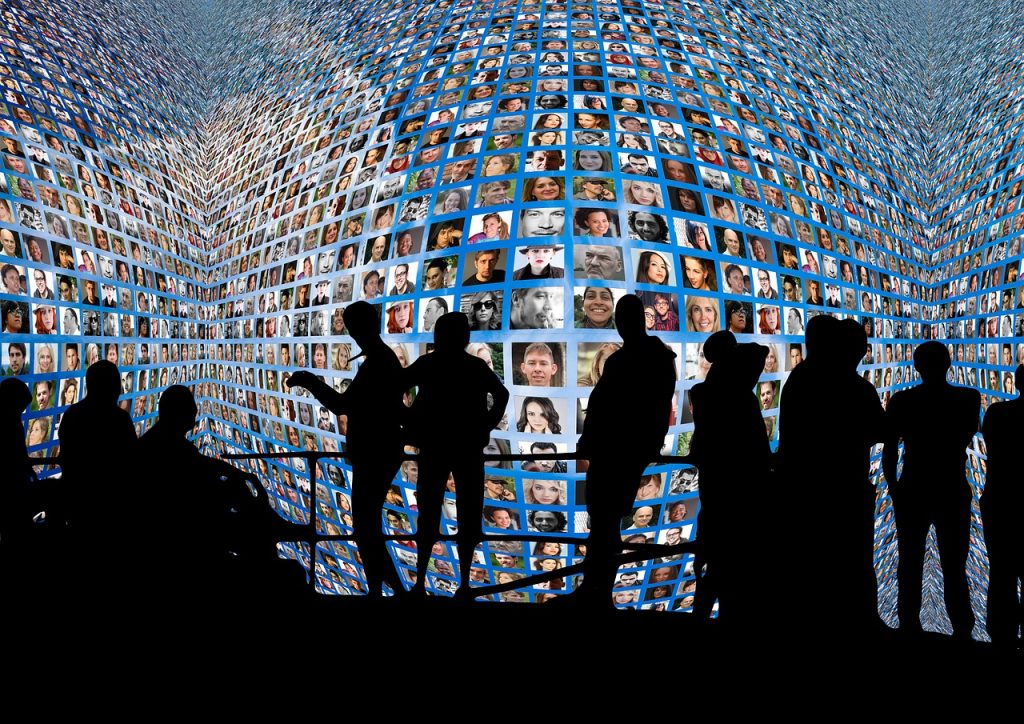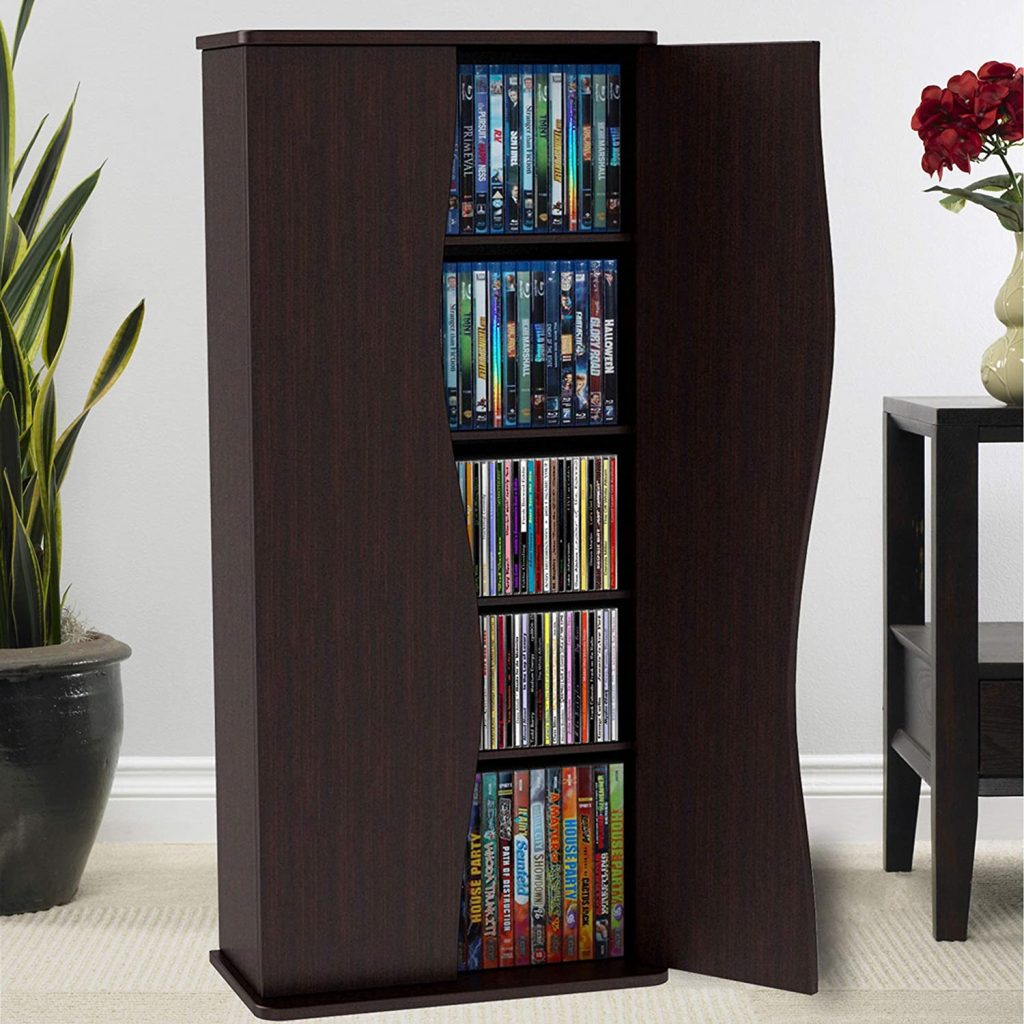Should You Still Buy Physical Media In Today’s Digitized World?
Find out if it's really time to say goodbye to your physical media.
This article is more than 2 years old

The way we obtain and consume media nowadays looks very different even when compared to just a decade ago. Rewind to circa 2012 and when you went into a store like Target or Walmart, upon entering the media section you would be met with rows and rows of Blu-Rays, DVDs, and Video Games. Even the CD section was still a measurable portion of those areas back then. You could actually even find a generous amount of books from which to choose, too.
However, if you enter that same section in those stores today you’ll be met with a very different picture. The aisles of physical media have been greatly reduced to an almost pitiful selection of titles. This section now exists as a shell of its former self. The culprit behind physical media’s fall from glory was the advent and widespread adoption of media in a digitized form. Today we download everything from songs to books and house them on tablets, e-readers, computers, and cloud servers.
It’s easy to see why digital media overshadowed physical media in what amounts to the blink of an eye. Keeping digital media is convenient. You can take a whole library of songs, books, and movies with you on a single device. Gone are the days of dedicating a whole suitcase to the physical media that you want to bring along on a trip with you. Gone are the days of lugging your CD case with you on your commute to work, or even your case full of Game Boy, DS, or PSP games with you on a long car ride. Today you just grab your Switch or Smartphone full of downloaded games, movies, and music and go. In this case, convenience is king.
Additionally, in many cases, digital media is more practical than physical media mainly because it saves so much space. Instead of having bookcases and shelving full of every piece of media you own, it all exists neatly contained on a digital file on a device. Even if you should run out of space on one of your devices, there are plenty of reasonably priced cloud storage services that will be more than happy to keep your “belongings” safe and sound for you. All that being said, we think that physical media is not only still worth buying, but that it is something that you absolutely should be buying, and this is why.
YOU THINK YOU OWN, BUT YOU DON’T OWN

First and foremost, it’s important to understand that owning digital forms of media is a complete façade. While on the surface buying digital media looks like it works the same as walking into a store and picking up a physical copy of something, it isn’t. For example, when you buy a movie online via a service like Amazon Prime Video what you are actually paying for is a non-transferable license to watch that movie at your leisure.
According to The Guardian, digital purchases are considered to fall under the first-sale doctrine. A first-sale doctrine is a United States copyright law that essentially says even though you purchased a certain digital file, you do not have the right to sell that file to someone else. Additionally, should you pass away you cannot transfer the rights of ownership of that file to another person.
To complicate matters further, going back to the Amazon Prime example, when your purchase a file via a platform like Amazon prime you cannot access that file on any other platform even though you technically own it. For example, despite the fact that you purchased the file you can’t just go and download it again for free on Apple’s iTunes Store. In order to do that you would have to “purchase” it again.
Owning physical media eliminates all of this extra red tape. If you own the physical copy of something you can sell it to or lend it to whomever you choose and you can play it on as many different devices as you want. Simply put, when you own physical media you actually own it, there are no stipulations or fine print.
THERE ARE NO GUARANTEES

One can argue that nothing in this world is guaranteed, and they would be correct in saying that. However, there is even less of a guarantee when it comes to digital forms of media in comparison to physical. This all goes back to digital pieces of media being tied to licenses, and just like your Driver’s license, licenses expire. As an example, if you purchase a song via iTunes and Apple happens to lose the license to that song, guess what, so do you.
However, a company losing a certain license to a digital IP doesn’t necessarily mean that you’ll lose access to that file, but it can mean that the file might not look or sound identical to the original. For instance, I’ve actually experienced this in my personal life. I am a big fan of JJ Abram’s classic cult TV show Alias (2001-2006). One particular day I was watching a favorite episode of mine from the show’s second season titled Phase One on Amazon Prime Video. I had watched this episode countless times before so I knew that the opening scene starts with a montage of the main character Sydney Bristow (Jennifer Garner) running to the song American Woman by Lenny Kravitz.
However, upon starting the episode I noticed that the song had been completely changed, which effectively altered the intended tone of that scene. The reason why Amazon changed the song is that they didn’t have the license to use it. Luckily for myself, I own all five seasons physically so I just popped in the disc that I owned and enjoyed the episode as it was originally meant to be watched and heard. Needless to say, owning physical media guarantees not only that you’ll always have a copy to watch but that you can watch it as it was initially intended.
LOSS OF CONNECTION

Loss of connection is a big one, and we don’t mean a loss of internet connection that would prevent you from streaming the content of your purchases, although that is a factor too. We mean the tactile connection that you have between yourself and the physical media you own.
On the surface, this might not seem important. However, considering that the reason why many of us are attached to certain movies, songs, or books is because they mean something to us, being able to physically hold something is actually far more important than you might think. This is because the media that we love is often tied to memories from our past. Having the ability to actually pick up and hold what you own has the propensity to connect us to and remind us of those memories in far deeper ways than simply storing a file on a hard drive or server. Physical media holds a place in our waking reality, which in a sense, makes it that much more real. Essentially it brings to the surface a piece of what makes us all human.
THE CONCLUSION

Physical media is without question still worth buying in today’s digitally dominant world. Physical media continues to define the real essence of ownership and it is guaranteed to maintain the integrity of and remain faithful to its original form. Lastly, it ties us to a piece of ourselves that has the potential to be lost within the limitations of a digital realm.




